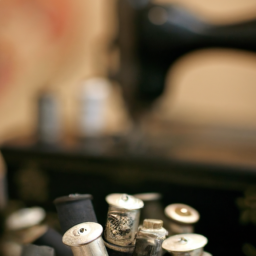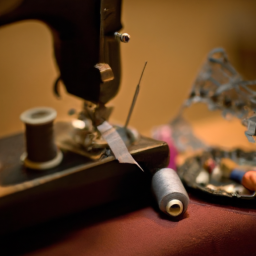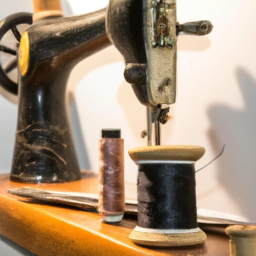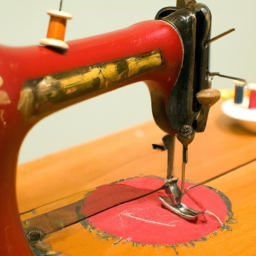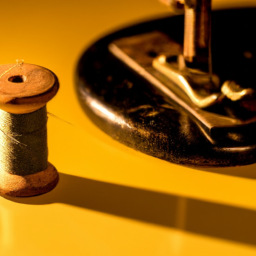
History of Sewing in India
Sewing, the practice of joining fabrics using stitches made with a needle and thread, has a rich and fascinating history in India. From ancient times to modern fashion, sewing has played a significant role in Indian culture.

Ancient Origins
The art of sewing has been prevalent in India since ancient times. Archaeological evidence suggests that various sewing techniques were practiced during the era of the Indus Valley Civilization around 2500 BCE. Needles made of bone and metal as well as thread spindles have been discovered, showcasing the early advancements in sewing technology.
Traditional Embroidery and Textiles
India is renowned for its beautiful and intricate embroideries. Embroidery techniques such as Chikankari, Zardozi, Kantha, and Phulkari have been handed down through generations. These techniques involve using threads, beads, sequins, and mirrors to create exquisite patterns on textiles.
Additionally, Indian textiles like silk, cotton, and muslin have been highly regarded worldwide for centuries. Skilled artisans employ sewing techniques to create stunning garments, sarees, and fabrics adorned with various designs and motifs.
Influence on Fashion
The sewing traditions of India have had a significant impact on the global fashion industry. Designers often incorporate Indian techniques and styles into their collections. Indian-inspired garments featuring embellishments, embroidery, and detailed stitching are celebrated on international runways and worn by people around the world.
- The Nehru jacket, a popular piece of clothing named after India’s first Prime Minister, Jawaharlal Nehru, showcases Indian tailoring techniques.
- The salwar kameez, a traditional Indian ensemble, has become a popular choice for casual and formal wear globally.
- Indian fashion designers like Sabyasachi Mukherjee and Manish Malhotra have gained global recognition for their innovative use of sewing techniques in their designs.
Modern Sewing Trends
In recent years, sewing has gained a resurgence in popularity in India. With the rise of DIY culture, sewing is now seen as a creative hobby and a way to personalize clothing. Many individuals are learning sewing techniques through classes, tutorials, and online platforms, enabling them to create unique and custom-made garments.
Furthermore, sustainable fashion practices have also contributed to the growing interest in sewing. By knowing how to repair and tailor clothes, individuals can extend the lifespan of their garments and reduce waste.
Overall, the history of sewing in India is extensive and influential. From ancient origins to modern trends, sewing continues to be a cherished craft, connecting generations and leaving a lasting impact on Indian culture and the global fashion industry.
Sources:
